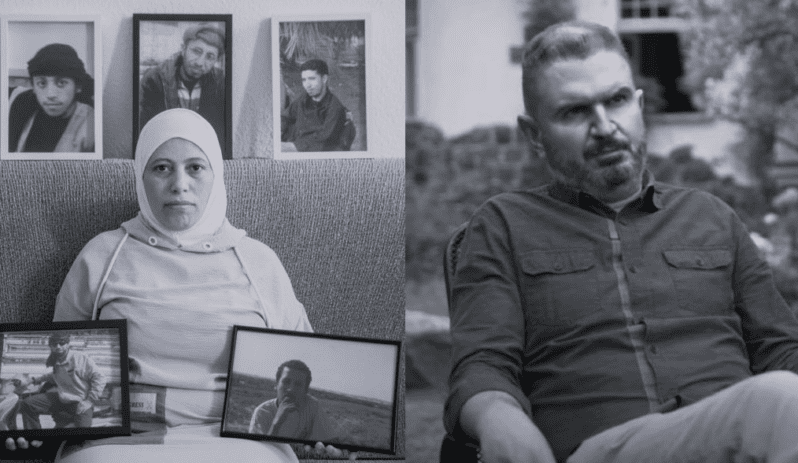Amending Egypt’s Probation Law: Police Comfort Trumps Citizens’ Dignity

On 20 July 2020, the Egyptian Parliament approved a bill submitted by the government to amend Decree-Law no. 99 of 1945, which regulates the measures and controls for implementing probation, and referred it to the State Council’s Legislation Department for review of the final wording.[1] The amendments aim primarily to change the site where probationers must remain under police monitoring for a certain period each day. Under the amendments, the police department or station will be the default location and the probationer’s place of residence will be an exception granted via approval from the competent director of security.[2] By contrast, the current law grants probationers the right to specify the location where they would like to stay during the monitoring hours.[3]
Demands that probationers be allowed – per the law’s provisions – to adopt their place of residence as the monitoring location have increased in legal and rights circles over the past two years after the Ministry of Interior began routinely compelling them – especially those convicted in political cases – to spend the monitoring period inside police departments.[4] This issue reached the administrative judiciary, which has witnessed several cases seeking to change certain convicts’ monitoring locations from police departments to their homes. Usually, these cases were dismissed or adjourned for long periods. The situation changed when, in a new precedent, the Mansoura Court of Administrative Justice compelled the Ministry of Interior to designate the home of activist Mohammed Adel, a founder of the April 6 Youth Movement, as his monitoring site for an ancillary penalty handed down in a protesting case.[5]
These amendments therefore aim primarily to “codify” the Ministry of Interior’s current practice of compelling convicts to spend the monitoring period inside police departments and block any new court cases that could change it. This article is an attempt to cast light on the problem of the use of legislation as a tool for codifying the executive authority’s violations and circumventing the judiciary’s rulings. It will also highlight the flaws in the new amendments to the probation law and their violation of the fundamental rights of the people it addresses, such as their right to work and right of movement.
When the Executive Authority’s Practices Become the Legislator’s “Philosophy”
The report by Parliament’s Defense and National Security Committee examining and providing an opinion on the bill contained no real exposition of the legal and constitutional bases and logical reasons for making such an amendment at this time. Such exposition was absent because although the Constitutional and Legislative Affairs Committee usually contributes to the drafting of parliamentary reports on bills (even when they pertain to matters outside its parliamentary purview),[6] this report was issued by the Defense and National Security Committee alone as it pertains to an issue related to defense, internal affairs, and public security.[7]
From another angle, the report presents the Ministry of Interior’s vision of how to handle probation as the “philosophy” of the legislator. It states that the primary motivation for the amendments is the “increasing burden on policemen during the implementation of the monitoring penalty in the accused’s home, which makes it hard for them to fully control the probationer”,[8] as well as Egypt’s “urban development and expansion at the present stage, which impedes monitoring procedures”.[9] This reasoning is anything but grounded in legal philosophy. Rather, it is a clear enunciation of the arguments that the Ministry of Interior, as the bill’s presenter, is using to justify passing it – arguments that should have been scrutinized. When discussing such an amendment, the committee should have observed the principle of proportionality between the legislation’s goal and the means adopted to achieve it as the amendment affects probationers’ fundamental rights. Such rights include their right to work and move about, which will be severely compromised if they spend the monitoring period inside police premises.
The Supreme Constitutional Court has frequently adopted the principle of proportionality. According to its jurisprudence, the legislator’s power to regulate rights is a discretionary power whereby it should compare the various options for regulating the matter in question and select the most appropriate one in terms of content, achieving the desired objectives, and fulfilling the most significant interests; moreover, the regulation should never go beyond the scope of the logical requirements of these objectives.[10] Hence, when examining the Ministry of Interior’s bill, the committee should have studied the amendments’ objective (to “fully control” the probationer, according to the report), and ascertained the connection of logical causality between it and the restriction they place on the right of movement and right to work by compelling probationers to spend the monitoring period inside police departments. It should also have compared the various alternatives that could achieve this goal (namely achieving control and unburdening police) and chosen the most appropriate one after weighing the various social interests. This the committee entirely neglected to do in its report. It mentioned no alternatives for achieving this objective, and even if keeping convicts inside police departments during the monitoring period were the only means to do so, it should have weighed convicts’ social interests up against the interest of unburdening police and given the former precedence. The committee probably refrained from this approach and subsequently adopted the government’s view as the law’s “philosophy” because of its members’ background in security (most are former Armed Forces and police officers) and the absence of any members from legal backgrounds.[11] This was evident in multiple places in the report, particularly the introduction, which states that Decree-Law no. 99 of 1945 “pertains to effectuating the provisions for monitoring convicts after their conditional release to confirm the good behavior condition”.[12] This statement is completely false because the law addresses all probationers, whether their probation is a principal, complementary, or ancillary penalty or a measure adopted following the issuance of a conditional release decision.[13] Subsequently, the true goal behind this legislative amendment is to codify the status quo of the Minister of Interior’s practices for implementing probation, particularly after the aforementioned administrative judiciary ruling, which opens the door for similar rulings.
Probation: From a Precautionary Measure Restricting Freedom to a Custodial Sentence
Probation is a precautionary measure aimed at protecting the community by imposing a degree of restriction on people with criminal records lest they return to crime. It is primarily a preventative penalty, as the Court of Cassation previously described in a ruling.[14] Accordingly, probationers are required to enable police to monitor them by complying with the restrictions placed upon them (i.e. remaining in their places of residence) and to periodically visit a police department to sign records. However, if the proposed amendments are adopted, probationers will be obliged to spend the daily monitoring hours (as many as 12 in some cases) inside a police station, unable to move about or work and perhaps unable to communicate in any manner with the outside world.[15] Hence, a preventative penalty that limits some of probationers’ freedom will transform into a custodial sentence that removes their freedom entirely and therefore undermines the fundamental goal of such a punishment, namely to reintegrate them into society and enable them to go about normal life in a safe manner that protects the community from any potential crimes.
The proposed bill is also further evidence of Egyptian legislators’ repeated attempts to distance themselves from any international human rights standards. In 1990, the UN General Assembly adopted the Standard Minimum Rules for Non-custodial Measures (the Tokyo Rules), whose first article stipulates that member states need to “develop non-custodial measures within their legal systems to provide other options, thus reducing the use of imprisonment, and to rationalize criminal justice policies, taking into account the observance of human rights, the requirements of social justice and the rehabilitation needs of the offender”.[16] Both the current legislation governing probation, which was adopted approximately 75 years ago,[17] and the international rules and standards adopted three decades ago agree on the need to reduce custodial measures and rehabilitate convicts. Yet the Egyptian legislators in 2020 appear to have another view far removed from the approaches adopted by most judicial and police systems around the world for enforcing probation.
While most legal systems are incorporating modern electronic means that reduce human encounters as much as possible, especially after the spread of COVID-19, the bill ignored the possibility of implementing a system of electronic monitoring that obliges subjects to stay home during certain hours and tracks them via an electronic bracelet or other electronic means. Such a system would ease the congestion in police institutions and reduce their expenses. Moreover, it would account for probationers’ social and working life as they could perform their work or study normally (to a certain extent), as well as maintain their family cohesion. Furthermore, electronic monitoring systems are not limited to western countries, like the USA and most European states, because several Arab states such as Algeria[18] and the UAE[19] have recently resorted to applying them. Hence, implementing one in Egypt is not at all difficult, especially given the presence of the necessary material and human resources.
Conclusion
Amending or passing laws to circumvent judicial rulings or codify existing “illegal” status quos blatantly violates the principle of the rule of law. This is a result of the transformation of legislation into a flexible tool in the executive authority’s hands with which it codifies its violations and flawed policies, and infringes the principle of the separation of powers. Subsequently, citizens lose faith in the law and the entire legislative system. In the long term, this practice will lead to disaster because these laws and amendments that violate general principles will remain entrenched in Egypt’s legislative framework. The amendments to the probation law that Parliament has approved are nothing but a blatant example of what could be dubbed “legislating for the authority’s sake”, which has become Parliament’s current methodology and one not liable to change any time soon.
This article is an edited translation from Arabic.
Keywords: Egypt, Probation, Police, Monitoring, Rights
[1] “al-Barlaman Yuwafiqu ‘ala Ta’dilat Qanun al-Muraqaba al-Shurtiyya wa-Yuhiluhu li-Majlis al-Dawla”, Youm7, 20 July 2020.
[2] Ibid.
[3] Article 2 of Decree-Law no. 99 of 1945 on regulating probation.
[4] “Probation in Egypt: A Means of Political Retaliation?”, The Legal Agenda, 17 September 2019.
[5] “Nanshuru Haythiyyat Hukm Qada’iyy Yasmahu bi-Qada’ al-Muraqaba al-Shurtiyya bi-l-Manzil Badalan min Aqsam al-Shurta”, Shorouk News, 1 February 2020.
[6] For example, the Constitutional and Legislative Affairs Committee participated, alongside the Housing, Public Utilities, and Construction Committee, in the drafting of the parliamentary report on a bill to amend the Construction Law even though its topic was outside the committee’s purview.
[7] “I’raf Ikhtisasat 25 Lajna Naw’iyya bi-l-Barlaman min Waqi’ al-La’iha al-Dakhiliyya li-l-Majlis”, Youm7, 22 February 2020.
[8] Page 2 of Parliament’s Defense and National Security Committee report.
[9] Ibid.
[10] Repeated jurisprudence by the Supreme Constitutional Court, including in its ruling in Case no. 20 of judicial year 27 in the session on 8 June 2008, published in Majmu’at Ahkam al-Mahkama al-Dusturiyya al-‘Ulya, part 12, vol. 2, p. 1129.
[11] “Nanshuru Asma’ Ru’asa’ al-Lijan al-Naw’iyya fi al-Barlaman”, Shorouk News, 2 October 2019.
[12] Page 2 of Parliament’s Defense and National Security Committee report.
[13] See the cases in which a person was placed on probation in “Mahall al-Sakan Qism al-Shurta”, a study by the Egyptian Initiative for Personal Rights, 9 April 2019, p. 17-20.
[14] Court of Cassation, Challenge no. 18344 of judicial year 83, session on 8 November 2014.
[15] “‘Ala’ ‘Abd al-Fattah Yat’anu li-Tamkinihi min Istihab ‘Laptop wa-Mobile’ Khilala Sa’at al-Muraqaba”, Shorouk News, 3 July 2019.
[16] United Nations Standard Minimum Rules for Non-custodial Measures (The Tokyo Rules), adopted by General Assembly Resolution 45/110 of 14 December 1990, articles 1-5.
[17] Decree-Law no. 99 of 1945.
[18] “Nizam al-Wad’ Tahta al-Muraqaba al-Iliktruniyya fi al-Tashri’ al-Jaza’iriyy”, Afak Ilmia, vol. 11, is. 3, 2019.
[19] “al-Raqaba al-Iliktruniyya.. ‘Hurriyya Mashruta’ li-l-Mahkumin bi-Nusf al-Mudda”, EmaratAlYoum, 11 November 2018.



